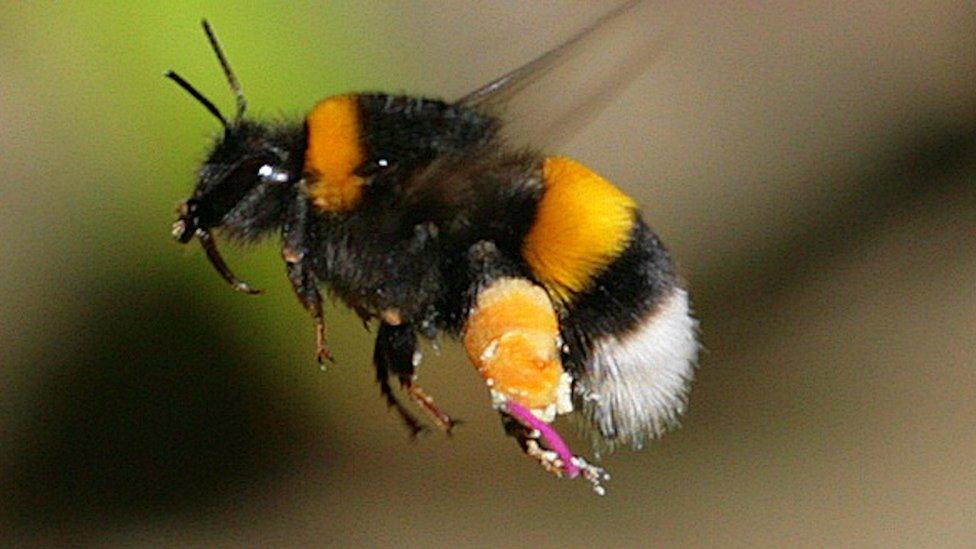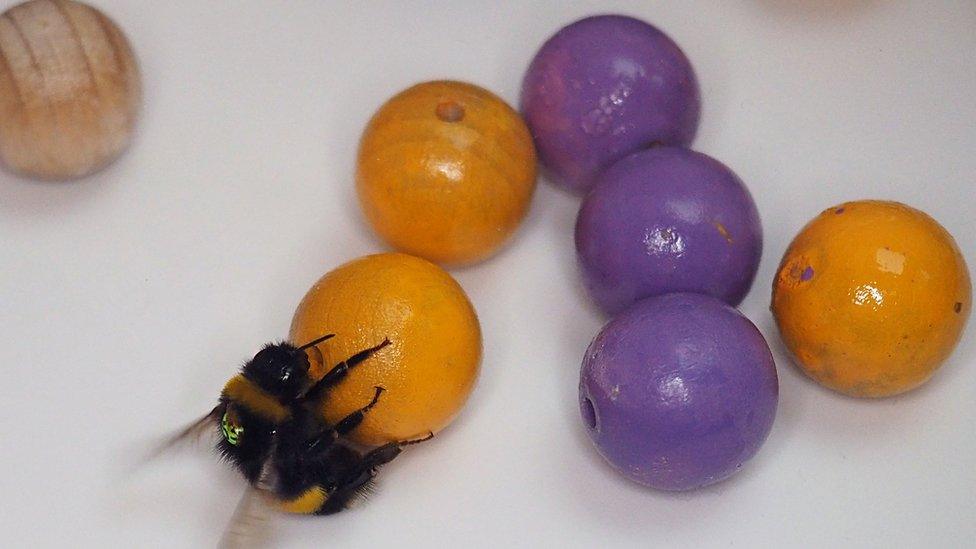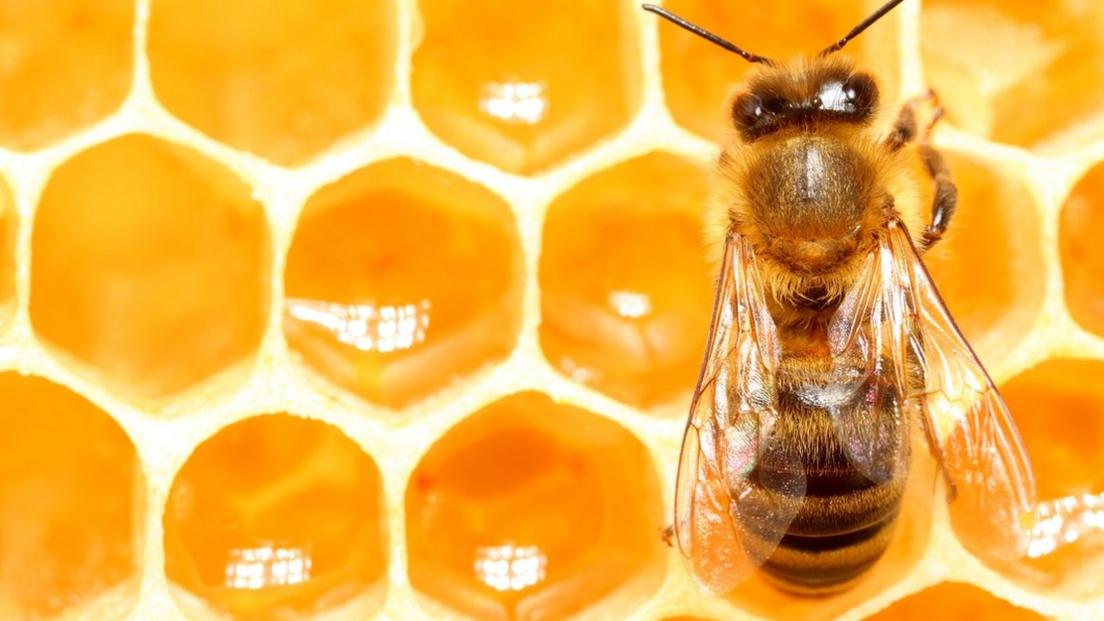Bumblebees enjoy playing with balls, according to study
- Published
- comments

Scientists watched bees interacting with balls as a form of play
You might associate bumblebees as big-lovers of pollen and flowers, but scientists have discovered that playing with balls also gets them buzzing!
A team at Queen Mary University of London observed the insects being continuously interested in and trying to play with colourful toy balls.
The team said that the study adds to growing evidence that bees' brains are much more complex than first thought.
'They are more than small robotic beings'

Younger bees were found to roll more balls than older bees, while adult males rolled for longer than females
The scientists behind the study designed multiple experiments where bumblebees were given a task: to roll wooden balls.
They found out that the insects showed their playful side by rolling the balls over and over again, even when not having a tasty treat or food to reward them.
As part of the study, 42 bees were given access to two rooms or chambers, but only one chamber had the wooden balls inside.
Later when the balls were removed, the bees showed that they preferred to go into the chamber where the balls had been before!
This suggested that that the bees didn't want the balls to help them survive, nor did the balls really reward them with anything - they simply wanted to play with them for their own enjoyment.
Why are bees so important?
Samadi Galpayage, one of the authors of the study, said: "It is certainly mind-blowing, at times amusing, to watch bumblebees show something like play. It goes to show, once more, that despite their little size and tiny brains, they are more than small robotic beings."
Lars Chittka, a professor on the study, said bees were "a million miles from the mindless, unfeeling creatures they are traditionally believed to be".
She added: "There are lots of animals who play just for the purposes of enjoyment, but most examples come from young mammals and birds.
"This research provides a strong indication that insect minds are far more sophisticated than we might imagine."
- Published29 April 2020

- Published27 October 2022

- Published27 October 2022

